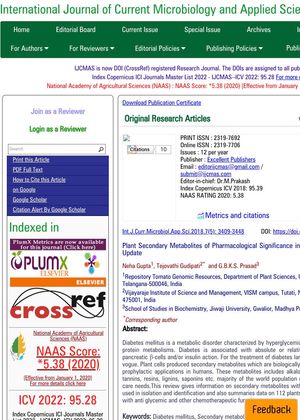Plant Secondary Metabolites of Pharmacological Significance in Reference to Diabetes Mellitus: An Update

TLDR Certain plant compounds can help treat diabetes.
The document "Plant Secondary Metabolites of Pharmacological Significance in Reference to Diabetes Mellitus: An Update" from 2018 discussed the role of plant secondary metabolites in the treatment of diabetes mellitus. Diabetes mellitus is a metabolic disorder characterized by high blood sugar levels and changes in carbohydrate, fat, and protein metabolisms. It's associated with deficiencies in insulin secretion or action. The paper highlighted that many people rely on herbal preparations for diabetes treatment. These preparations often contain secondary metabolites from plant cells, including alkaloids, glycosides, flavonoids, terpenoids, tannins, resins, lignins, and saponins, which have therapeutic and prophylactic applications. The review provided information on these metabolites, techniques for their isolation and identification, and summarized data on 112 plants and their parts with antidiabetic properties and other chemotherapeutic functions.